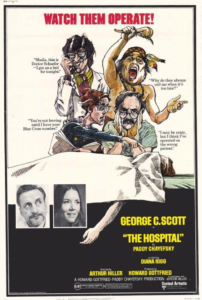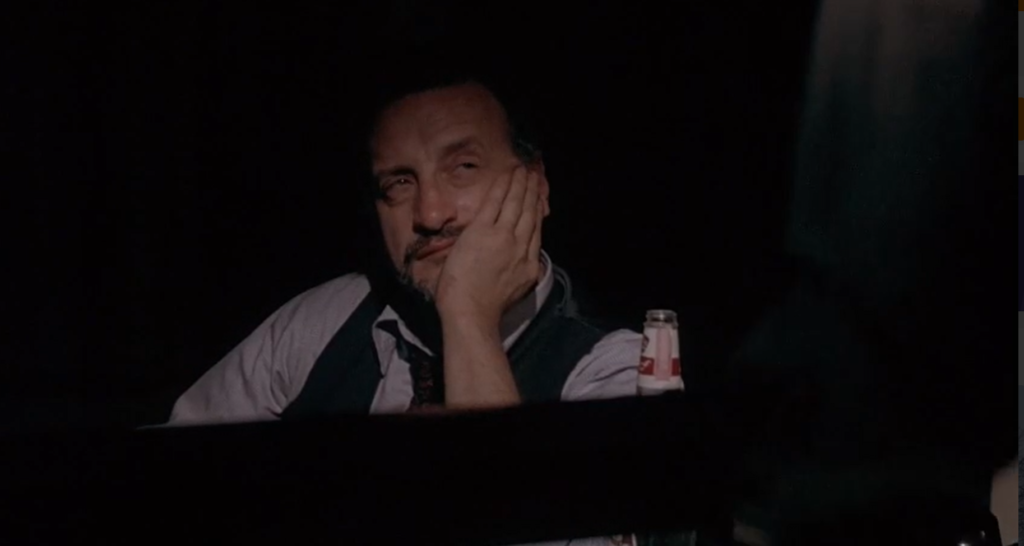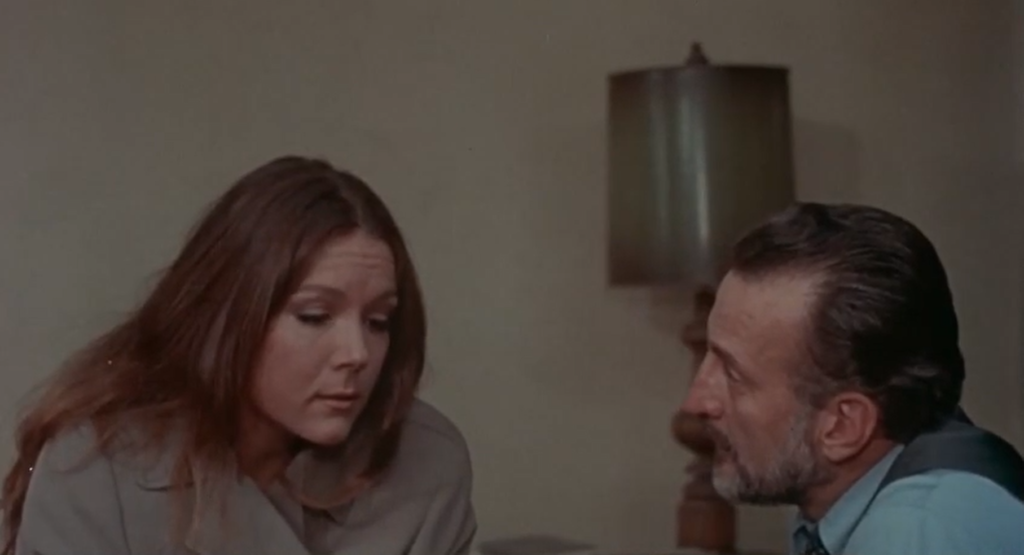|

Synopsis:
A suicidal doctor (George C. Scott) finds his faith in life renewed by a free-spirited young woman (Diana Rigg), whose father is a patient in his dysfunctional New York hospital; meanwhile, doctors and nurses throughout the hospital are mysteriously dropping dead.
|
|
Genres, Themes, Actors, and Directors:
- Black Comedy
- Diana Rigg Films
- Doctors and Nurses
- George C. Scott Films
- Murder Mystery
Review:
Paddy Chayefsky’s darkly humorous look at the dysfunction inherent in enormous urban hospitals — patients are wrongly diagnosed and poorly cared for while general chaos abounds — never quite reaches the satirical heights it aspires towards. The problem is primarily one of the erratic tone: the films opens with a voiceover, explaining to us how the chain of fatal events that eventually transpires was initiated by the admittance of an elderly man, whose untimely death is symptomatic of deeper problems inherent in the hospital’s day-to-day functionings. After this, however, the voiceover disappears, and we’re left to our own devices as the story toggles between random murders, satirical jabs at the inner workings of the hospital (many of which ring humorously true), and the central somber story about an existentially dissatisfied doctor (Scott) who finds his joy for life (surprise, surprise) awakened through sex with a young woman (Rigg) who has a “thing” for older men; their conversations together are smartly written, but seem to belong to a different film entirely. By the end of the film, the ongoing mystery of how and why so many doctors and nurses have been killed is satisfactorily resolved — but the shift back to dark comedy feels jarring. Scott and Rigg’s fine central performances make this film worth a look, but it’s not quite must-see viewing.
Redeeming Qualities and Moments:
- George C. Scott as Dr. Bock (Peary nominates him as Best Actor of the Year in his Alternate Oscars book

- Diana Rigg as Barbara

Must See?
No, though it’s worth a look. Listed as a film with Historical Importance in the back of Peary’s book — most likely because of its Oscar-winning screenplay.
Links:
|
2 thoughts on “Hospital, The (1971)”
Black comedy features a ‘tour-de-force’ performance from veteran actor George C. Scott. He’s good at playing high-strung, serious characters whose strict morals are severely tested [i.e. Hardcore]. The film unfolds like a melodrama, giving a pretty good account of hospital life, and the shambles they sometimes are. But then, as things look set for a dramatic climax it skews into slapstick comedy.
If Paddy Chayefsky’s script had maintained its dramatic feel I wonder if Scott would’ve walked out with another best Actor Oscar (he had previously won it, ‘in-absentia’, the year before for ‘Patton’). His breakdown (suicide) scene is one of the most gutwrenchingly real in cinema history.
QUOTE: Dr. Bock: “. . . last night I sat in my hotel room reviewing the shambles of my life and contemplating suicide. I said ‘no Bock don’t do it. You’re a doctor, a healer, you’re a necessary person, you’re life is meaningful’. Then. . . I find out that one of my doctors was killed by a couple of nurses. . . how am I to sustain my feeling of meaningfulness in the face of this?”
Must-see. I posted on this in my FB ‘Film Junkie’ group just now. I’ll re-post that comment here:
[Gave this a revisit after many years. One of the characters in this film eventually remarks on “the whole wounded madness of our times” – which is why I feel that Paddy Chayefsky’s script takes place in a hospital only because a story has to be set someplace specific; you can’t set a story in the entire world. I think – with what has been mislabeled ‘satire’ (this film isn’t really funny, though it’s cynical) – Chayefsky is raging about the overall impossibility of healing (or gaining the amount necessary for a quality of life) in any significant way. When Diana Rigg’s character goes into a monologue about religion, it’s clear (to the writer) that that’s no real panacea for man either. No doubt Chayefsky is also highly critical of the medical world – I just don’t think it stops there with his script. George C. Scott’s character refers to “societal sickness” – so it seems the point here is…the more modern (or advanced) our world becomes, the less we know (about what’s most important) and the less we understand the world we live in. In other words, we need a ‘hospital’ – but all too often we aren’t finding one. This film was released almost 50 years ago. It still has something to say – now more than ever. Chayefsky’s next script – ‘Network’ – would cement his jaundiced (or one might say ‘realistic’) view of life.]